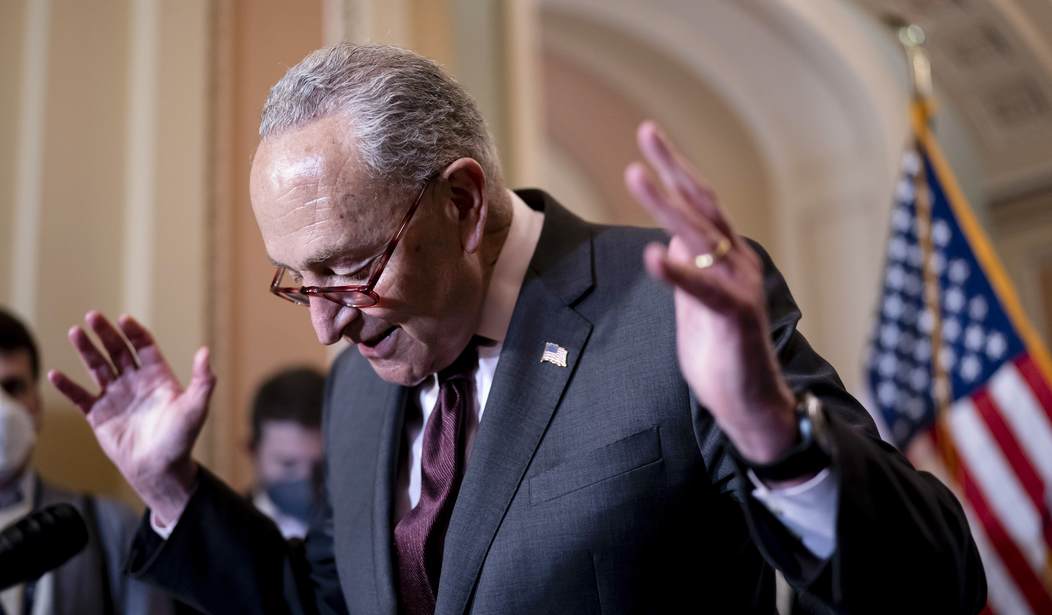It should come as no surprise that the $739 billion “Inflation Reduction Act” doesn’t reduce inflation much at all. Moody’s Analytics chief economist Mark Zandi says that, over a ten-year period, the bill would reduce inflation by all of one-third of a percentage point.
“Through the middle of this decade the impact of the legislation on inflation is marginal, but it becomes more meaningful later in the decade,” Zandi wrote.
As Politico reports, “That assessment lands on the heels of another report from the Penn Wharton Budget Model — whose research is said to be favored by Manchin (D-W.Va.) — which characterized the bill’s long-term inflationary impact as being ‘statistically indistinguishable from zero.’”
“White House officials’ own rosiest, best-case-scenario spin is that their ‘Inflation Reduction Act’ will have taken one third of one percentage point off inflation by nine years from now?” Andrew Quinn, a speechwriter for Senate Minority Leader Mitch McConnell (R-Ky.), asked incredulously.
“White House comms spiking the ball over a bill that doesn’t reduce inflation until 9 years from now,” mocked Heritage Foundation spokesman Jon Cooper. “And keep in mind, this is obviously the best number they could come up with.”
Schumer and Manchin have claimed the bill would reduce inflation by lowering prescription drug and energy costs while reducing the federal budget deficit through a 15% minimum tax on corporations that report income of at least $1 billion per year, increased tax enforcement by the IRS, and taking a share of profits earned by general partners at private equity, hedge funds, and venture capital firms known as carried interest.
It’s even possible that the bill would raise prices, not cut them.
Levon Galstyan, a Certified Public Accountant with Jersey City- based Oak View Law Group, agreed, noting: The Inflation Reduction Act will shift resources through hundreds of billions of dollars in special-interest subsidies targeted to Democratic constituencies, further limiting supply through restrictions and tax increases.
“A deterrent to output would be that manufacturers would pay around half of all new levies,” Galstyan also told The Post. “The legislation would subject small businesses to a horde of tax enforcers, driving up prices and limiting their capacity to serve customers.”
Peter Morici, an economist and professor emeritus at the R.H. Smith School of Business at the University of Maryland, had a rather humorous take on whether the bill would reduce inflation.
“One of the Fed bank presidents [Neel Kashkari of Minneapolis] came out [Sunday] morning … saying we’re going to get inflation down at 2%. If you believe that, then I want you to go to Yankee Stadium on Sunday afternoon and look for me playing shortstop,” Morici told The Post.
“I’m 73 years old. I was a pretty damn good middle infielder, but I didn’t have much of a career because I never could hit the breaking ball,” he added. “I mean, that’s as credible as I’m gonna play shortstop for the New York Yankees.”
We won’t look for Mr. Morici playing second base at Yankee Stadium anytime soon.
The subsidies to Democratic constituencies are why this bill is being pushed, not because it reduces inflation. And if the bill happens to cause inflation to increase, Biden can always blame Putin for the price spike.










Join the conversation as a VIP Member